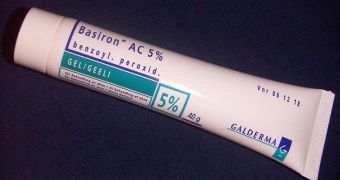A large number of teenagers who suffer from acne say that the condition is having numerous effects on their personal life, in addition to being a cosmetic inconvenience. Scientists found that the teens are more likely to experience anxiety, depression and suicidal thoughts as a result.
The study, led by investigators in the United States, indicates that there may be more to the condition than meets the eye, seeing how many test subjects reported a severe decrease in self-esteem and even overall quality of life, if they were suffering from the condition.
As such, it may be that adolescents who suffer from it are also more prone to developing depression and a host of other psychological disorders. This aspect of the condition has not been studied in depth before, analysts say.
Scientists at the Wake Forest University (WFU) Baptist Medical Center (BMC), led by professor of dermatology Steve Feldman, MD, conducted the new study by analyzing the scientific literature published on the topic over the past few years.
This systematic review revealed that fact that the vast majority of teens consider acne to be a cosmetic problem. At the same time, many of them complain that the condition led them to develop associated conditions, that are very difficult to get past.
“With this study, we found that acne is more than skin deep for those aged 13 to 18. Depending on how the patient feels about it, acne can have a potentially large and negative impact on their lives or it can have a small affect,” Feldman explains.
In one of the studies in the review, experts uncovered a direct correlation between the severity of acne in adolescents and the number of suicidal thoughts and attempts in this population, PsychCentral reports.
In the future, Feldman believes, healthcare providers should keep an eye out for the onset of psychological disorders when they are visited by teen patients with acne. In this way, they may contribute to diminishing the number of adolescents that try to end their own lives.
“Acne affects how we perceive ourselves. It affects how others perceive us. And it affects how we perceive how other people perceive us,” the team leader explains.
Details of the new investigation appear in the latest issue of the Dermatology Online Journal.

 14 DAY TRIAL //
14 DAY TRIAL //